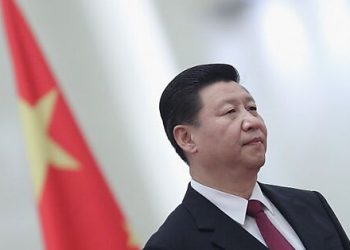A second term for Donald Trump promises to revive “Trumponomics” – policies defined by protectionism, deregulation, and strong-arm geopolitical tactics.
Douglas Grant, managing director at Manx Financial Group looks at why for UK SMEs, navigating a post-Brexit economic landscape could become more complex. At the same time, new openings for growth may emerge, particularly around overseas trade and supply chains. Below, we explore five key areas likely to shape both the challenges and opportunities ahead.
Trade barriers and tariffs vs. strengthened UK-US trading relations
Trump’s emphasis on “America First” is likely to involve increased tariffs and robust domestic priorities. These measures could raise costs and regulatory hurdles for UK SMEs selling into the US market, dampening competitiveness and raising uncertainty around existing trade agreements.
However, any surge in US protectionist policies might also encourage the UK to align with other similarly affected nations, potentially leading to alternative trade partnerships outside the US and China. To capitalise on such shifts, SMEs should keep a close watch on trade negotiations, prepare to adapt their export strategies, and track fluctuations in currency and regulations.
Regulatory changes and market volatility vs. favourable tax policies
Trump’s track record of deregulation could make it more challenging for UK businesses to stand out in an increasingly competitive US domestic market. Meanwhile, his unpredictable approach to policymaking may trigger market volatility, affecting exchange rates and investor confidence. UK firms will need to stay agile, planning for the potential impact of abrupt changes.
On the plus side, the US administration’s push to cut corporate taxes and reduce regulations could lower operating costs for British companies with American footprints. SMEs would do well to remain updated on possible tax reforms and adjust financial strategies – for instance, rethinking capital allocation or pricing models – to benefit from any shifts in US fiscal policy.
Currency fluctuations and cost implications vs. M&A opportunities
If a second Trump administration drives the dollar higher, importing goods from the US becomes more expensive for UK companies, potentially undermining profitability. Although a stronger dollar might boost the competitiveness of UK exports, any benefit could be neutralised by new or increased tariffs. To mitigate the risk, SMEs should consider hedging strategies or negotiate contracts in more stable currencies.
Conversely, a realignment of global trading blocs in response to US protectionism could stabilise currency movements within smaller networks. In these scenarios, some SMEs may find appealing opportunities for mergers and acquisitions. By keeping close tabs on emerging trade corridors and any related currency predictability, firms could spot lucrative deals or strengthen their presence in high-potential markets.
Geopolitical uncertainty vs. supply chain opportunities
A return to Trump’s assertive foreign policy may heighten tensions with China and the EU, resulting in complications for firms reliant on multinational supply chains. Potential shifts in NATO dynamics or global alliances further increase the complexity for businesses operating in multiple regions.
Yet, US-China friction might incentivise American firms to diversify their supply chains, opening the door for UK suppliers offering competitive pricing, reliability, or unique products. SMEs should explore building more nimble supply networks and investing in improved logistics infrastructure to step in where established trade links falter. Positioning as a trustworthy, cost-effective supplier could pay dividends in uncertain times.
Tighter us immigration policies vs. increased UK services demand
A tougher stance on immigration could curb UK companies’ ability to recruit and relocate talent to the US. To offset this, SMEs might consider remote working models, partner with local agencies, or shift expansion plans to alternative regions.
On the other hand, if Trump’s economic agenda spurs growth in the US, demand for professional services – including financial, legal, and tech solutions – is likely to rise, presenting fresh opportunities. UK businesses skilled in these areas could capitalise on an uptick in cross-border consulting, outsourcing, and digital service exports.
Looking ahead
Trumponomics, if resurrected, may bring complex challenges for UK SMEs, yet it also highlights clear possibilities for those prepared to adapt and innovate. Strengthening ties with other trading partners outside the US and China, monitoring currency shifts, and assessing supply-chain vulnerabilities can all help firms stay resilient. By planning proactively, embracing digital transformation, and remaining agile in the face of policy changes, UK SMEs stand a chance not only to weather potential storms but to flourish on the global stage.
Read more:
The five challenges and opportunities for UK SMEs under a second Trump presidency
















